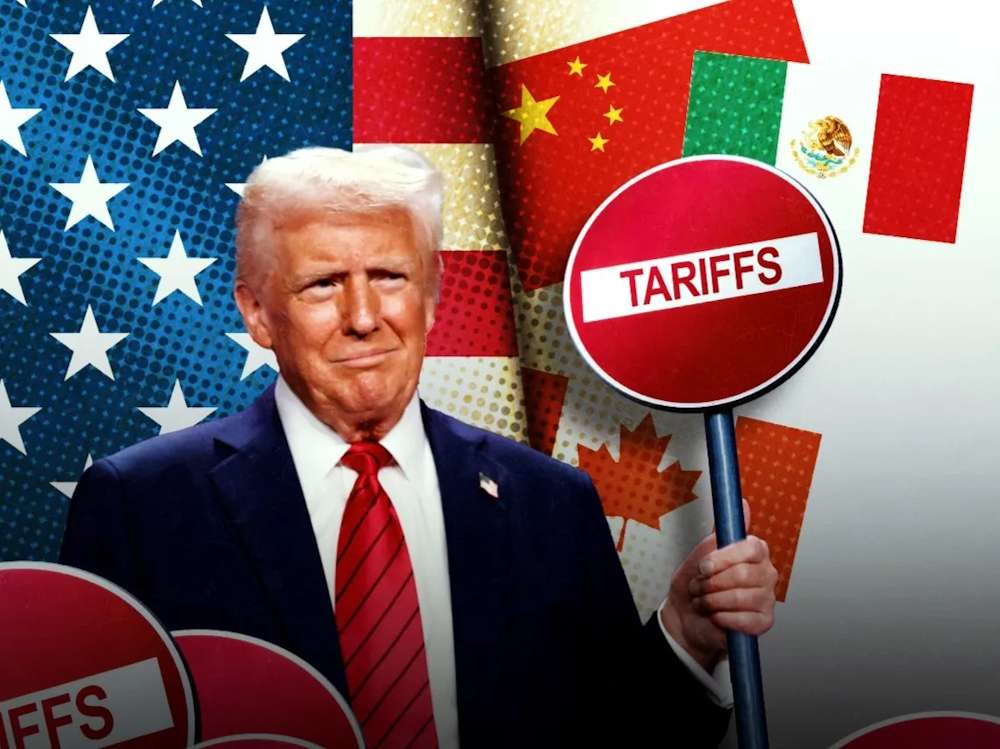Approximately 50% of individuals in Mexico, Argentina, and Brazil express a desire for their governments to respond to the tariffs imposed by Trump, while a marginally lower percentage of Colombians and Chileans hold similar views. Concerns regarding US tariffs are prevalent among Latin Americans; however, there exists a spectrum of opinions regarding the appropriate responses their leaders should adopt in light of the impending trade levies that Donald Trump is expected to announce this week.
According to a recent survey conducted by AtlasIntel for Bloomberg News, published on Tuesday, approximately 50% of respondents from Mexico, Argentina, and Brazil express a desire for their governments to respond to the tariffs imposed by Trump. This sentiment is echoed, albeit to a lesser extent, by respondents from Colombia and Chile. However, a significant proportion of respondents in each country, approximately one-third, advocate for the imposition of higher tariffs on US goods. Nonetheless, a preference emerges for strengthening trade relationships with US competitors such as China or exploring alternative strategies.
Trump’s tariff threats have instigated significant disruption in Mexico, where President Claudia Sheinbaum has adeptly navigated the situation by prioritizing negotiations over aggressive retaliation, thereby successfully averting widespread levies on her country’s goods. Brazil’s Luiz Inácio Lula da Silva and others have adopted a similar strategy in an attempt to negotiate agreements regarding US tariffs on steel and aluminium. Trump is anticipated to launch his most significant offensive on Wednesday, as he has committed to outlining reciprocal tariffs on nations that impose duties on American products — a promise that has sparked concern in sectors of the highly-protectionist Latin American region.
Approximately 75% of respondents from Mexico, Chile, and Colombia identify tariffs as a significant issue, with around two-thirds or more anticipating considerable economic repercussions, according to the survey results. Approximately 40 percent of respondents in each country indicate that their preferred option is to impose retaliatory tariffs on American products as a countermeasure. However, approximately one-third of Chileans, along with around 40 percent of Mexicans and Colombians, express the view that strengthening trade relationships with China and other nations is a more favorable approach.
Brazilians exhibit a notable division regarding the trade upheaval, as evidenced by 47 percent identifying tariffs as a significant concern, while 53 percent do not share this sentiment. Fifty percent of respondents express a desire for Lula’s administration to take retaliatory measures, yet opinions are evenly split between the imposition of new tariffs on American products and strengthening relationships with competitors of the United States, with 45 percent supporting each option.
Citizens of Argentina exhibit a pronounced propensity to endorse assertive confrontation should their country opt for a reactive stance: A majority of 59 percent express a preference for increased tariffs on products from the United States, while an additional 23 percent support the implementation of new restrictions on investments originating from the Trump administration. This situation may pose a significant challenge for President Javier Milei, a libertarian leader who has cultivated a strong rapport with Trump and is eager to negotiate a free-trade agreement with the United States.
Leaders in Latin America have, to date, refrained from implementing the kind of assertive countermeasures that Canada employed in reaction to the initial imposition of tariffs by Trump. Colombia’s Gustavo Petro stands out, as his clash with the US president regarding deportation flights resulted in significant tariff threats, which ultimately had adverse effects on his standing with the electorate.
‘Limited reasons for optimism’ despite decline in poverty, states specialist
In contrast, Sheinbaum has experienced an increase in her approval rating, reaching 85 percent among the Mexican populace, as she garners international acclaim for her management of relations with Trump. She intends to delineate her country’s strategy in response to the most recent set of tariffs only following Trump’s announcement, adhering to a measured approach that has thus far enabled Mexico to sidestep the majority of the duties he has threatened to implement.

